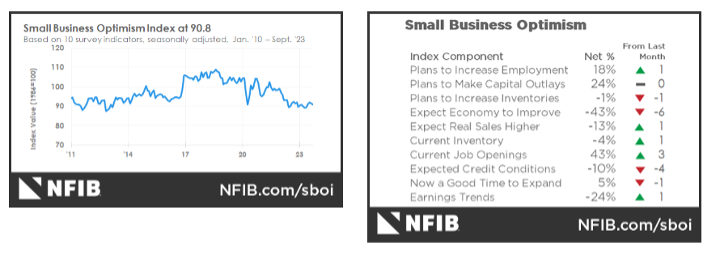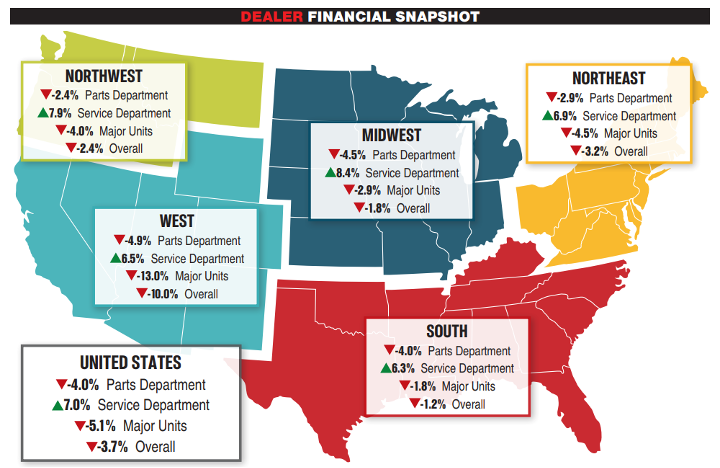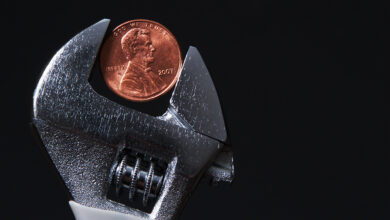KPI — October 2023: The Brief

The Conference Board Consumer Confidence Index® declined to 103.0 (1985=100) in September, down from an upwardly revised 108.7 in August. The Present Situation Index – based on consumers’ assessment of current business and labor market conditions – rose slightly from 146.7 to 147.1 (1985=100). Meanwhile, the Expectations Index – based on consumers’ short-term outlook for income, business and labor market conditions – declined to 73.7 (1985=100), after falling to 83.3 in August.
Overall expectations dropped below 80 – a level which historically signals a recession within the next year. Accordingly, recent data also shows that consumer fears of an impending recession ticked up, which is consistent with the short and shallow economic contraction anticipated during the first half of 2024.
Similarly, the University of Michigan Survey of Consumers – a survey consisting of approximately 50 core questions covering consumers’ assessments of their personal financial situation, buying attitudes and overall economic conditions – dipped to 68.1 in September, compared to 69.5 a month prior. Moreover, October preliminary data projects a sharp downward trend to 63.
“Nearly all demographic groups posted setbacks in sentiment, reflecting the continued weight of high prices,” says Joanne Hsu, director of the University of Michigan’s Surveys of Consumers.
According to the current NFIB Small Business Optimism Index, 23% of owners said inflation is the single most important problem in operating their business. As a result, 29% reported raising average selling prices – up two points month-over-month.
Another 43% (seasonally adjusted) of all owners pointed to job openings they could not fill in the current period, up three points from August. Of rising concern, 37% have openings for skilled workers (up two points) and 18% have openings for unskilled labor (unchanged). The difficulty in filling open positions is particularly acute in the construction, retail, manufacturing and services sectors.
“Owners remain pessimistic about future business conditions, which has contributed to the low optimism they have regarding the economy,” says Bill Dunkelberg, chief economist at NFIB. “Sales growth among small businesses [has] slowed and the bottom line is being squeezed, leaving owners few options beyond raising selling prices for financial relief.”

Professionals in the automotive, RV and powersports industries remain steadfast in their efforts to evolve their business models and grow their brands in the face of adversity. As such, the monthly Key Performance Indicator Report serves as an objective wellness check on the overall health of our nation, from the state of manufacturing and vehicle sales to current economic conditions and consumer trends. Below are a few key data points explained in further detail throughout the report:
Top Takeaways:
- Economic activity in the manufacturing sector contracted in September for the 11th consecutive month following a 28-month period of growth, according to the nation’s supply executives in the latest Manufacturing ISM® Report On Business®. The Manufacturing PMI® registered 49% in September, 1.4 percentage points higher than 47.6% recorded a month prior but still in contraction territory.
- The Consumer Price Index for All Urban Consumers (CPI-U) rose another 0.4% in September on a seasonally adjusted basis after increasing 0.6% in August, notes the U.S. Bureau of Labor Statistics. Over the last 12 months, the all-items index increased 3.7% before seasonal adjustment.
- The NFIB Small Business Optimism Index decreased another half of a point in September to 90.8. September’s reading marks the 21st consecutive month below the 49-year average of 98.
- Total new-vehicle sales for September 2023, including retail and non-retail transactions, are projected to reach 1,309,900 units – a 13.8% year-over-year increase, according to a joint forecast from J.D. Power and GlobalData.
- Powersports Business says dealers across the country reported an overall revenue decline of 3.7% in August, according to composite data from more than 1,700 dealerships in the U.S. that utilize CDK Lightspeed DMS. On average, dealerships were down 5.1% in major units and 4% in the parts department, respectively. Even though service sales climbed 7%, it was not enough to stave off the dip.

KPI — October 2023: State of Business
Key Performance Indicators Report — October 2023



